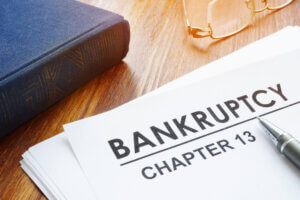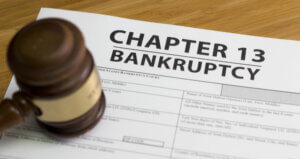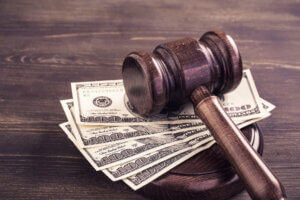 Knowing what happens after a chapter 13 discharge is equally as important as the process. Learn what to expect as you reach closure in this helpful guide.
Knowing what happens after a chapter 13 discharge is equally as important as the process. Learn what to expect as you reach closure in this helpful guide.
You’ve spent hours with the lawyer working on your Chapter 13 bankruptcy. You’ve been to court and filed all the paperwork. Finally, after years of waiting and making payments, your bankruptcy is finally discharged. Now, what?
Many people believe once the chapter 13 discharge is complete, it’s smooth sailing, but work is just beginning. You don’t know what happens after your discharge is complete and what obligations and opportunities are available to you.
The bankruptcy alleviated your debt problems and got the creditors off your back. This guide provides you with the information needed to navigate the days and months following your discharge.
Overview Chapter 13 Bankruptcy
Chapter 13 isn’t about debt forgiveness, but a method for people with a regular income to pay back debts over time. The debtor creates a repayment plan and submits it to the creditors. The plan considers the income of the debtor, money for bills, and paying back creditors.
Many times, the amount offered to the creditors is less than what they want, but as it’s a bankruptcy, they take what they can get. If they dispute it, then it is something you work out with your bankruptcy attorney. The repayment plan is set for 3 to 5 years depending on various factors including the income of the debtor.
Creditors are unable to continue their efforts to collect the debt for the duration of the repayment plan. Once the debt is paid off, the court discharges the bankruptcy. The courts hold a hearing to determine if there are any reasons why the bankruptcy shouldn’t be discharged.
If not, the bankruptcy is formally discharged. There is also a hardship discharge if something happens that causes the debtor to no longer provide payments for the plan. There can be no modification of the repayment plan once it’s approved regardless of the debtor’s situation.
Chapter 13 Discharge Clears Qualified Debts
Congratulations, you’ve spent years slowly repaying your debts and the plan is now complete. The judge issues the discharge and now any remaining balances on your qualified debts are forgiven. Chapter 13 bankruptcy allows for more qualified debts than Chapter 7.
Traditionally, covered debts include non-priority unsecured debts such as credits cards, medical bills and non-secured loans. Chapter 13 expands this to include debt connected to damage you did to the property of another person with the object to cause damage.
It also includes taxes paid with a credit card and certain divorce property settlements. This does not include alimony or child support debt. If you owe fines, penalties, or forfeitures to the government, then they are cleared.
This doesn’t include criminal fines or restitution. Other qualifying debts under Chapter 13 include debt due to a wrongful act against a bank, court fees for someone that files official documents, and security law violation debts.
Your discharge means any remaining debt is forgiven and creditors cannot go after you for it. If they do, then you should contact your bankruptcy lawyer. You’ve made all your Chapter 13 bankruptcy payments and your debts are gone.
Your Credit Score Takes a Hit
Your credit score takes a major hit following a Chapter 13 discharge. Odds are if you’re in bankruptcy, your credit score isn’t great anyway, but it’s not uncommon for a credit score to drop as much as 200 points.
It also shows on your credit report that you have a bankruptcy, and it remains there for 10 years. This is a negative strike and can make it difficult to get a standard loan from a bank, but your debts are also at zero.
Credit card companies keep track of bankruptcies and often send people who have poor credit offers for credit cards designed for them. These cards have a low balance and very high-interest rates. Once your debt is zeroed out, it’s an opportunity to rebuild your credit, but take it slowly.
The last thing you want is to incur debt again and end up in the same boat as you were before. There is nothing you can do about the credit score hit, but you can choose what debt you want to incur.
It’s Time to Start Over
The goal of bankruptcy is to eliminate your debt, so you can start your life over and get off to a good start. Secured debts such as a house or car are untouched, so you still have them. You also have to pay student loans.
It’s time to begin again. We mentioned that credit card companies send you offers. When you’re ready, choose one and use it to slowly rebuild your credit. Use the card sparingly and pay off the debt every month.
You also want to keep up with utility and other bills. The key to improving your credit score is incurring small amounts of debt and paying them on time. If you have a home or a car loan, then make sure it’s paid on or before the due date.
Late payments make your credit score decline. It’s also important to not incur large amounts of debt in comparison to your income.
You should also get your credit report from all three credit bureaus: Experian, Equifax, and TransUnion. This way you can see what is on it, report any mistakes, and work to improve your score. You likely received the reports during the bankruptcy process, but it’s been several years since then.
If you make your payments on time and control the debt, then your credit score gradually increases after several months. When the bankruptcy finally leaves your credit report, expect a sudden bump in your credit score.
Choose the Right Path Following Discharge
Chapter 13 bankruptcy takes years to fully implement. Your bankruptcy lawyer helps you through the process until the Chapter 13 discharge, but then it’s up to you to make the right decisions.
Bankruptcy is an opportunity to alleviate your burdening debt and start over. Once the discharge is over, the creditors are gone and you’re ready to move on with your life. Don’t make the same mistakes that put in that position.
If you want to learn more about Chapter 13 bankruptcy and discharge, then call Husker Law today at (402) 415-2525.

 Knowing what happens after a chapter 13 discharge is equally as important as the process. Learn what to expect as you reach closure in this helpful guide.
Knowing what happens after a chapter 13 discharge is equally as important as the process. Learn what to expect as you reach closure in this helpful guide.



